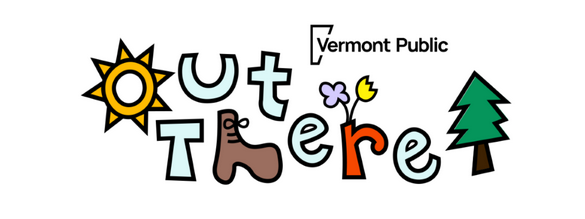This is the web version of our email newsletter, Out There! Sign up to get our monthly dose of all things environment — from creatures you might encounter on your next stroll, to a critical look at the state's energy transition, plus ways to take part in community science and a roundup of local outdoor events.
🌔 It’s Friday, December 13. Here’s what’s on deck:
- Testing milk for bird flu
- A new town forest
- New Year’s Day hikes
But first,
Farming inside a shipping container

Every week during the growing season, a pop-up farmstand in Burlington offers free produce to anyone who comes by, including vegetables that might be familiar to many immigrant and refugee communities, like white African eggplants, snake gourds (also called pudalangai), lagenaria (in the squash family), amaranth greens (or linga linga), and molokhia (or jute leaves).
For years, the farmstand has sourced from surplus produce grown at local farms. This year, farmers are continuing the weekly distributions during the winter by growing food in a shipping container to extend the growing season.
🚿 They use hydroponics – a flood and drain system – to grow vegetables like bok choy and Tokyo Bekana (a cabbage), swiss chard, cilantro, Nepali mustard greens, thyme, lettuce, collard greens, and kale.
🗺️ The project gives out the vegetables in neighborhoods with Nepali, Somali, Iraqi and Congolese Burundi communities. The goal is to make people new to the country feel welcome and acknowledge the role the U.S. has played in the displacement of many refugees around the world.
🤝 “On the surface, it looks like we're just giving away free veggies,” the executive director said. “But we are bringing our community members into a solidarity fold.”
In other news
🐄 Testing milk for bird flu: Hundreds of dairy herds in the U.S. have tested positive for bird flu since this spring – though none in the Northeast. Now, the federal government is requiring every state to test their milk supply for the virus, which has devastated wild bird and marine mammal populations and sickened dozens of people. Vermont plans to collect milk samples from processing plants and send them to Cornell University for testing, starting as soon as this month.
✂️ How cuts to EPA could impact Vermont: Federal dollars account for about a third of the Agency of Natural Resources’s budget, including funding for staff to enforce water and air pollution regulations and wetland protections. Cutting positions wouldn’t make regulations go away, but it could mean they aren’t fairly and consistently enforced. A less robust EPA might also lengthen waits for permits, and slow response to environmental emergencies.
🌲 A new town forest: An area in Monkton half the size of Central Park is now owned by the town and will be protected from development. The land has beaver wetlands, vernal pools and public access points. It was once home to sheep farms, a timber company, and supposedly supplied iron for warships used in the War of 1812. Funding for the $1.1 million property came from state and federal grants and local donations. Wolcott also recently purchased a 735-acre community forest within walking distance of downtown.
In your backyard

Get out there
🦃📋 Winter bird count: For over a century, birding enthusiasts have gone out for a day around Christmas to count the number and kinds of birds they see and hear in a designated 15-mile circle. The data provides information on long-term population trends for different species. Sign up ahead of time to participate on teams all over the state between Dec. 14 and Jan. 5. Here are a smattering of options:
- Brattleboro: Saturday, Dec. 14. The day will end with a potluck at 6:30 p.m. — sign up for more information.
- Plainfield: Saturday, Dec. 14 – the count, centered around Goddard College, has been going since 1960. Organizers will end the day with a potluck at North Branch Nature Center in Montpelier.
- Champlain Islands/St. Albans: Sunday, Dec. 15.
- Mad River Valley/Northfield: Friday, Dec. 20.
- Rutland: Saturday, Dec. 28. Counting will be followed by a potluck at the Proctor Free Library at 6 p.m. to go over the day’s results.
🥾 New Year’s Day hike: State parks staff and volunteers will be leading hikes all over the state Wednesday, Jan. 1. Some are geared towards families with young kids, others are more strenuous – including one hike to Butler Lodge on Mount Mansfield. The hikes are free, but make sure to sign up ahead of time.
Credits: This week’s edition was put together by Lexi Krupp with lots of help from the Vermont Public team, including graphics by Laura Nakasaka and digital support from Sophie Stephens. Editing by April McCullum and Sophie Stephens.





